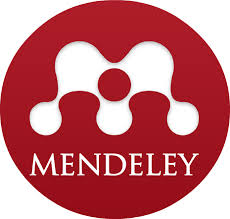PENINGKATAN KEMAMPUAN MOTORIK KASAR ANAK USIA NIDI MELALUI PERMAINANTRADISIONAL PADA KELOMPOK B TK ISLAM SILMI SAMARINDA
DOI:
https://doi.org/10.24903/jw.v3i2.264Abstract
Gross motoric ability is one aspect of development carried out in early childhood. Kindergarten learning program is a whole unit that is developed through themes and sub-themes in the process of interacting with kindergarten children at learning resources by playing in the game environment or better known as the area or center. The increase in gross motoric skills of kindergarten children is generally carried out outside the classroom with the development of learning programs according to the curriculum that must be developed according to the level of achievement of children from one stage to the next stage through a game. This study aims to improve the Gross Motoric Ability of Early Childhood through Traditional Games in Group B of Silmi Samarinda Islamic Kindergarten. This research was conducted in Group B of TKIslam Silmi Samarinda. The method used in this study is Classroom Action Research (CAR), carried out three times in one cycle with four stages: (1) Planning, (2) actions, (3) observations and (4) reflection. The research subjects were 20 students aged 5-6 years. The research data was obtained from the collection of instruments through observation, field notes and documentation. The results of the study increased the gross motoric skills of children after analyzing the data on four aspects of assessment, namely; jumping, body balance, agility, and flexibility seen these four aspects have different levels of difficulty where the aspects of jumping and body balance as a whole are able to do so, while the aspects of agility and flexibility of most children have a low ability. But the overall gross motor skills of the children in the pre-study reached 64%, the first cycle reached 70%, the second cycle reached 801% and the third cycle 90%. Traditional game method is a very appropriate method applied in increasing gross motor skills of children aged 5-6 years or group B.
References
Achroni Keen,. (2012). Mengoptimalkan Tumbuh Kembang Anak melalui Permainan Tradisional, Javalitera. Jogjakarta
Arikunto Suharsimi,.(2009). Suharjono, Supardi, Penelitian Tindakan Kelas, PT. Bumi Aksara, Jakarta
Desmita,. (2007). Psikologi Perkembangan, Remaja Rosdakarya. Bandung
Djali,. ( 2007). Psikologi Pendidikan, PT. Bumi Aksara. Jakarta.
Fatinabdrashid., 2011. Defenisi Permainan Tradisional http: // blogspot.com.html).
Hasan Maimunah., (2010). PAUD (Pendidikan Anak Usia Dini). Banguntapan. Jogjakarta.
Hurlock, Elizabeth B,.(1980). Psikologi Perkembangan: Suatu Pendekatan Sepanjang Rentang Kehidupan. ErlanggaJakarta
_____________., (2001). Perkembangan Anak Jilid 1. Jakarta: Erlangga
http://fatinabdrashid.blogspot.com/2011/09/definisi-permainan-tradisional.html. Diakses tanggal 9 November 2014
http://www.scribd.com/doc/3636800/Permainan-tradisional. Diakses tanggal 18 November 2014
Kementerian Pendidikan Nasional Direktorat Jenderal Menajemen Pendidikan Dasar dan Menegah Direktorat Pembinaan TK dan SD ., (2010). Jakarta
Sujiono Yuliani Nurani,. (2008). Metode Perkembangan Kognitif, Universitas Terbuka. Jakarta.
Suryadi,. ( 2007). Cara Efektif Memahami Perilaku Anak Usia Dini, Edsa Mahkota. Jakarta.
Tim Penyusun Kamus,.(2000). Kamus Besar Bahasa Indonesia, Depdikbud. Jakarta
Purwakania Hasan Aliah B.,.(2006). Psikologi Perkembangan Islam. PT. RajaGrafindo Persada. Jakarta.
Downloads
Published
How to Cite
Issue
Section
License
Authors retain copyright and grant the journal right of first publication with the work simultaneously licensed under a Creative Commons Attribution 4.0 International License that allows others to share the work with an acknowledgement of the work's authorship and initial publication in this journal.









